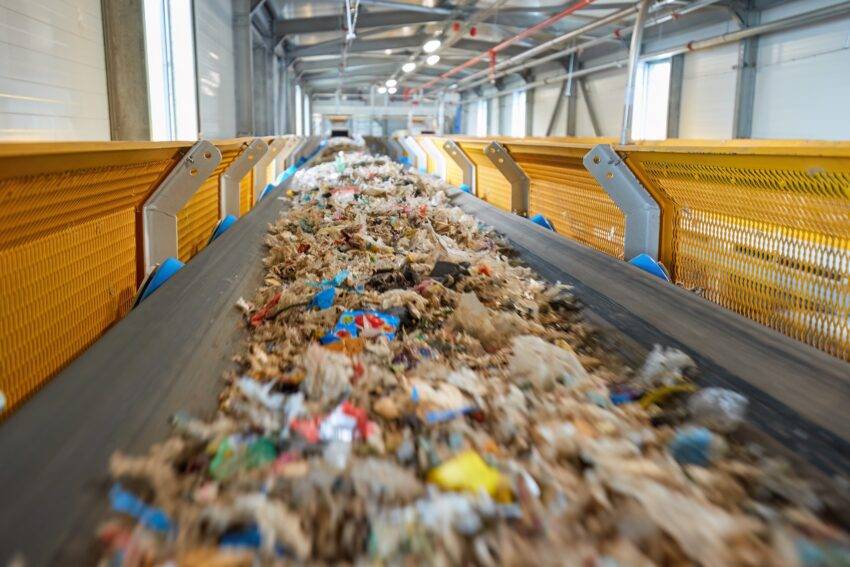While focusing on our ease, we are polluting our planet one way or the other. Heaps of rubbish, tons of toxic gasses, and gallons of polluted water are exposed to the soil, air, and natural water reservoirs, thus posing major impacts on the Earth.
We need collective efforts to minimize their impact on the health of nature.
Opting for eco-friendly choices not only revives nature but paves pathways for our future generations to breathe in healthy air and live on productive land.
Let’s discover how we can contribute on individual levels to reduce waste.
Prefer Reusable Bags
Plastic bags are non-biodegradable, which means they will stay in the ground in their original shape without decomposing or changing their composition. Layers of plastic bags buried in the soil make it hard for water to seep through and sunlight to reach the soil, further leading to its impaired health.
If you notice piles of such plastic bags and trash building up, don’t forget to contact waste removal services to clear out the trash. A little effort can go a long way without you being aware of it.
Reusable grocery bags are the ones made from paper or cloth. Write down reusable bags in your grocery checklist and keep them in your drawers for any future needs. Paper and clothes are eco-friendly, and replacing plastic bags with these bags can contribute to eco-friendly practices.
You may already have reusable grocery bags at home that are often abandoned deep inside the drawers and never see the sunlight. Try creating a reminder for taking bags when you leave for grocery or keep them inside your car so it’s easy to bring them to use.
Recycle It
Waste can be reduced by 40% if the purchasing products come with recyclable packaging. Companies need to invest a bit more in their packaging to make it eco-sustainable and recyclable. How can commoners contribute to it?
Start checking the labels before you buy and only opt for the products that are labeled with eco-friendly or reusable/ recyclable tags. To understand these tags, you need to enhance your knowledge about recyclable plastics. Here are a few types of plastics that can be recycled.
- PET (Polyethylene Terephthalate)
- HDPE (High-Density Polyethylene)
- PVC (Polyvinyl Chloride)
- Ldpe (Low-Density Polyethylene)
- PP (Polypropylene)
- PS (Polystyrene)
The more we put emphasis on eco-sustainable products, the more companies are pressured to start investing in sustainable raw materials to enhance their consumer market.
We can also contribute to the recycling of products by using services like oneillskiphire.co.uk, which use the correct steps to collect recyclable waste and take it to the right facilities for processing. If you find heaps of plastic waste, don’t forget to contact such services and play your role in saving our planet.
Compost the Trash
Fertilizers are expensive, and it becomes a pain if you have a beautiful garden to take care of. Switching to organic approaches can be a potential solution. Now you might think it’s out of your turf or how you can make organic fertilizers yourself. Don’t fret; It’s a breeze.
Did you know that almost 50% of your kitchen waste is actually compostable? Your vegetable or fruit scraps, coffee grounds, egg shells, left-over food, grass clippings, and fallen leaves can all be composed and turned into natural fertilizers right in your backyard.
Although we admit that composting requires effort and time, it can be a lucrative return on investment in the form of reduced fertilizer costs and beautiful and organic garden growth. Depending upon your climate and regional conditions, composting may take 3 to 12 months before you can use it in your garden.
The organic matter will provide necessary nutrients to the plants while acting as a sponge to absorb enough water for plants which means less watering needs at your end.
Cut Down the Use of Paper
Thousands of acres of forests are wiped out in order to fulfill the worldly needs of paper. Trees play the most crucial role in keeping our climate and soil balanced. They breathe fresh oxygen into the air and reduce the greenhouse gas effects thus bringing down the temperature of the atmosphere. At the same time, their roots are embedded deep into the land to create air pockets and keep it alive.
Wiping the trees ultimately cuts down all the benefits that plants bring to us. Try cutting the use of mail, receipts, and magazines to switch to their electronic alternatives. The e-mails, e-receipts, and e-magazines are great because they not only are harder to lose but also save paper needs.
Conclusion
Countries are generating more waste than they can treat. The best way to reduce the production of waste is to make efforts on individual levels. The more eco-friendly and sustainable approaches we adopt, the better our chances are to minimize the feed for landfills.
It all starts with YOU and ME!


